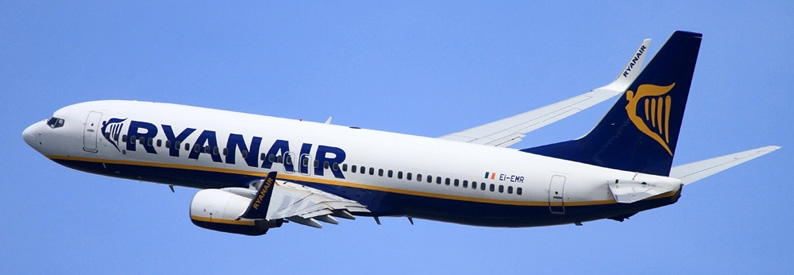Ryanair pulls out of Northern Ireland over tax issues

Ryanair (FR, Dublin Int’l) has blamed UK passenger taxes and a lack of COVID-19 recovery incentives for its decision to pull out of Northern Ireland this year.
The Irish carrier in a statement on August 24 confirmed it would stop flying from both Belfast City and Belfast Int’l on September 13 and October 30 respectively, while it already ended operations from Londonderry earlier this year. A Ryanair spokesperson said the airline would reallocate its aircraft to lower-cost airports elsewhere in the UK and Europe for the winter schedule starting in November.
The UK government levies GBP13 pounds (about USD18) on each departing passenger on short-haul flights of 3,200km and GBP82 (USD112) for longer return flights, with higher rates for premium class travellers. It increased the longer-haul charge this year in the face of criticism from the aviation industry.
Airlines operating in Northern Ireland are subject to these charges, in contrast to the Republic of Ireland, which axed passenger tax in 2013. Derry City Airport joined forces with the two Belfast gateways in 2018 to demand that the UK government follow the Irish example. Ryanair and other carriers with UK-based operations also have been lobbying for a cut or end to the APD.
Ryanair’s departure from Belfast City means the loss of eight routes: Alicante, Malaga, Palma de Mallorca, Ibiza, Barcelona El Prat, and Valencia Manises in Spain, Faro in Portugal, and Milan Bergamo in Italy, according to the ch-aviation schedules module. Belfast International will lose six routes including Alicante and Malaga in Spain, Gdansk, Kraków, and Warsaw Modlin in Poland, and Milano Bergamo in Italy.
A spokeswoman for Belfast City said the routes had only been seasonal, reported The Irish Times.
Belfast International Airport said: “It is disappointing that Ryanair has now decided to withdraw operations from the entire Northern Ireland market at the end of October, having variously had a presence in all three local airports in recent years. It has been a difficult period for aviation and a time when consumers need some stability and faith in the Northern Ireland air transport network.”
The spokesman said the move was not unexpected. “As we have been anticipating such a move, we have been engaging with our existing and other new airlines to provide continuity on the routes to be vacated by Ryanair, and to help sustain employment in the aviation industry at a local level in Northern Ireland. To this end, we hope to be able to make announcements regarding fresh route development in the near future.”
